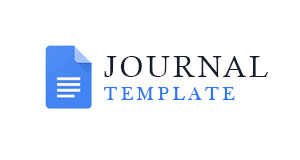Factors Determine The Survival Of Mustahiq Micro-Entrepreneurs In The National Zakat Board (Baznas) Of West Java Province
Abstract
Keywords
Full Text:
PDFReferences
Abdullah, M. W., Almath, M. F., & Muin, R. (2020). Implementation of Afzalur Rahman ’ s Idea About Production Based The Al- ‘ Adl Concept to Improving Consumer Satisfaction. Al-Ulum, 20(1), 38–62. https://doi.org/https://doi.org/10.30603/au.v20i1.1159 Implementation
Ajzen, I. (1991). The Theory of Planned Behavior. Organizational Behavior and Human Decision Process, 50(11), 179–211. https://doi.org/10.1080/10410236.2018.1493416
Al Mamun, A., Ibrahim, M. D., Yusoff, M. N. H. Bin, & Fazal, S. A. (2018). Entrepreneurial leadership, performance, and sustainability of micro-entrepreneurs in Malaysia. Sustainability (Switzerland), 10(5). https://doi.org/10.3390/su10051591
Amelia, N., Machfiroh, I. S., & Fitriyani, Y. (2020). Analisis Pengaruh Penyaluran Dana Zakat terhadap Perkembangan Usaha Kecil dan Menengah (UKM) Mustahik. JURNAL AKUNTANSI, EKONOMI Dan MANAJEMEN BISNIS, 8(1), 45–51. https://doi.org/10.30871/jaemb.v8i1.1707
Azis, A., & Rusland, A. H. (2009). Peranan Bank Indonesia di Dalam Mendukung Pengembangan Usaha Mikro, Kecil, dan Menengah. In Seri Kebanksentralan (Issue 21).
Bahri, E. S., & Oktaviani, R. (2019). Zakat Produktif Sebagai Modal Kerja Usaha Mikro. Perisai : Islamic Banking and Finance Journal, 2(2), 101. https://doi.org/10.21070/perisai.v2i2.1686
BAZNAS provinsi Jawa Barat. (2020). Laporan Kinerja BAZNAS Provinsi Jawa Barat.
Becker, G. S. (1962). Investment in Human Capital: A Theoretical Analysis. Journal of Political Economy, 70(5, Part 2), 9–49. https://doi.org/10.1086/258724
Bird, B. (1995). Toward a Theory of Entrepreneurial Competency. Advances in Entrepreneurship, Firm Emergence and Growth, 115–131. https://doi.org/10.1108/S1074-754020190000021011
BPS Provinsi Jawa Barat. (2021). Provinsi Jawa Barat Dalam Angka 2021. BPS Provinsi Jawa Barat.
Cahyani, U. E., Hanafi, S. M., & Masruri, S. (2022). The Nexus Between University Support and Entrepreneurial Mindset: Does Entrepreneurship Education Matter? Indonesian Journal of Business and Entrepreneurship. https://doi.org/10.17358/ijbe.8.3.351
Cahyani, U. E., Masruri, S., & Hanafi, S. M. (2022). DOES ENTREPRENEURSHIP EDUCATION MATTER FOR ISLAMIC HIGHER EDUCATION STUDENTS’ ENTREPRENEURIAL READINESS? Jurnal Ekonomi Bisnis Dan Kewirausahaan, 11(2), 258. https://doi.org/10.26418/jebik.v11i2.55092
El-Aziz, T. M. A., & Stockand, J. D. (2020). Recent progress and challenges in drug development against COVID-19 coronavirus (SARS-CoV-2) - an update on the status. Infection, Genetics and Evolution, 83(April), 104327. https://doi.org/10.1016/j.meegid.2020.104327
Guarte, J. M., & Barrios, E. B. (2006). Estimation Under Purposive Sampling. Communications in Statistics: Simulation and Computation, 35, 277–284. https://doi.org/10.1080/03610910600591610
Hamidi, I., Suhel, S., & Latif, A. (2019). The effectivities of zakat productive funds toward zakat recipient income in Palembang. Jurnal Ekonomi Pembangunan, 17(1), 24–30. https://doi.org/10.29259/jep.v17i1.8965
Islami, A. C., Kunaifi, A., & Gunawan, J. (2017). Ragam Pengukuran Kinerja pada Usaha Mikro, Kecil, dan Menengah (UMKM) di Surabaya. Jurnal Sains Dan Seni ITS, 6(2). https://doi.org/10.12962/j23373520.v6i2.23112
Kementrian KUKM. (2019). Perkembangan Data Usaha Mikro, Kecil, Menengah dan Usaha Besar. In www.Depkop.Go.Id (Vol. 2000, Issue 1).
Khairani, M., & Ekawaty, M. (2017). Zakat Produktif dan Perannya Terhadap Perkembangan UMKM. Jurnal Ilmiah Akuntansi Dan Bisnis, 2(1), 1–16. https://doi.org/http://dx.doi.org/10.38043/jiab.v2i1.170
Khan, Z., & Lew, Y. K. (2018). Post-entry Survival of Developing Economy International New Ventures: A Dynamic Capability Perspective. International Business Review, 27(1), 149–160. https://doi.org/10.1016/j.ibusrev.2017.06.001
KNEKS. (2020). Tantangan, Kendala dan Solusi Penerapan Sertifikasi Halal Indonesia.
Kurniawan, M. Z., Ula, M. F., & Setyawan, A. (2020). Pengaruh Zakat Produktif, Manajemen Usaha, dan Pendampingan Terhadap Perkembangan Usaha Mikro Mustahik di LAZNAS LMI Unit Layanan Blitar. BISEI: Jurnal Bisnis Dan …, 05(April), 30–39. http://ejournal.unhasy.ac.id/index.php/bisei/article/view/1120
Mutia, E., & Annisa, L. (2019). Productive Zakat Distribution in Increasing the Revenue of Mustahik in Baitul Mal Aceh. Proceedings of the 2nd Aceh Global Conference on Business Economic and Sustainable Development Trends (AGC-BEST) 2019, 2009, 153–158.
Napitupulu, R. M., & Sukmana, R. (2023). A Review of Fintech and Waqf Intersections in Academic Debates. ZISWAF: JURNAL ZAKAT DAN WAKAF, 10(1), 44. https://doi.org/10.21043/ziswaf.v10i1.19545
Ng, M. K. (2020). Sustainable Development Goals (SDGs) and Pandemic Planning. Planning Theory and Practice, 21(4), 507–512. https://doi.org/10.1080/14649357.2020.1807130
Nuryati, M. S., & Bahri, E. S. (2022). Optimizing Digital Marketing Platform for the Success of Asnaf Entrepreneurs. ITQAN: Journal of Islamic Economics, Management and FInance, 1(2), 36–47. https://journal.itqanpreneurs.com/index.php/itqan/index
Nyamwanza, L., Paketh, L., Makaza, F., & Moyo, N. (2016). An evaluation of the policies instituted by the government of Zimbabwe in promoting survival and growth of SMES: The case of Glenview area 8 SMES. International Journal of Information Management, 8(4), 304–316.
Putri, E. H. (2017). Efektivitas Pelaksanaan Program Pengembangan Usaha Mikro Kecil Dan Menengah (UMKM) Di Kota Samarinda ( Studi Pada Dinas Koperasi Dan UMKM Kota Samarinda ). E-Journal Administrasi Negara, 5(1), 5431–5445.
Rahayu, A., Harto, P. P., & Bahri, E. S. (2021). The Impact of Macroeconomic Indicators on Zakah Receipt during the Covid-19 Pandemic Era. Falah: Jurnal Ekonomi Syariah, 6(2), 60–74. https://doi.org/10.22219/jes.v6i1.16394
Saputra, N., & Prihandoko, D. (2020). Collaborative Capability : Memperkuat Ketahanan UMKM Melewati Krisis Covid-19. Seminar Nasional Manajemen Dan Call for Paper (SENIMA 5) Collaborative, October.
Sari, A. Q., Sukestiyarno, Y. L., & Agoestanto, A. (2017). Batasan Prasyarat Uji Normalitas Dan Uji Homogenitas Pada Model Regresi Linear. Unnes Journal of Mathematics, 6(2), 168–177. https://doi.org/10.15294/ujm.v6i2.11887
Schultz, T. W. (1972). Human Capital: Policy Issues and Research Opportunities: Vol. I. NBER.
Sharma, P., Chrisman, J. J., & Chua, J. H. (2003). Succession Planning as Planned Behavior: Some Empirical Results. Family Business Review, 16(1), 1–15. https://doi.org/10.1111/j.1741-6248.2003.00001.x
Surico, P., & Galeotti, A. (2020). The economics of a pandemic : the case of Covid-19. London Business School Lecture, March, 3, 4.
Susilawati, S., Falefi, R., & Purwoko, A. (2020). Impact of COVID-19’s Pandemic on the Economy of Indonesia. Budapest International Research and Critics Institute (BIRCI-Journal): Humanities and Social Sciences, 3(2), 1147–1156. https://doi.org/10.33258/birci.v3i2.954
Thaariq, R. M., Wahyu, M. F. R., Ningrum, D. R., & Aidha, C. N. (2020). Kemiskinan Multidimensi dan Risiko COVID-19 di Indonesia. PRAKARSA Working Paper No., 1–131.
Thaker, M. A. M. T., Amin, M. F., Mohd Thas Thaker, H., Khaliq, A., & Allah Pitchay, A. (2020). Cash waqf model for micro entrepreneurs’ human capital development. ISRA International Journal of Islamic Finance, ahead-of-p(ahead-of-print). https://doi.org/10.1108/ijif-08-2018-0091
Ulubeyli, S., Kazaz, A., & Sahin, S. (2018). Survival of Construction SMEs in Macroeconomic Crises: Innovation-based Competitive Strategies. Journal of Engineering, Design and Technology, 16(4), 654–673. https://doi.org/10.1108/JEDT-03-2018-0057
UNU-WIDER. (2020). Estimates of the impact of COVID-19 on global poverty. In
UNU WIDER Working Paper 2020/43 (Issue April). UNU-WIDER 2020. https://doi.org/10.35188/UNU-WIDER/2020/800-9
Yusoff, M. N. H. Bin, Mamun, A. Al, Ibrahim, M. D., & Hassan, H. (2018). Measuring and comparing functional business skills and knowledge among Asnaf community in Malaysia. Economics and Sociology, 11(2), 229–247. https://doi.org/10.14254/2071-789X.2018/11-2/16
Yusup, F. (2018). Uji Validitas dan Reliabilitas Instrumen Penelitian Kuantitatif. Jurnal Tarbiyah : Jurnal Ilmiah Kependidikan, 7(1), 17–23. https://doi.org/10.18592/tarbiyah.v7i1.2100
DOI: https://doi.org/10.24952/tijaroh.v9i1.7047
Refbacks
- There are currently no refbacks.
Copyright (c) 2023 At-tijaroh: Jurnal Ilmu Manajemen dan Bisnis Islam

This work is licensed under a Creative Commons Attribution-ShareAlike 4.0 International License.








